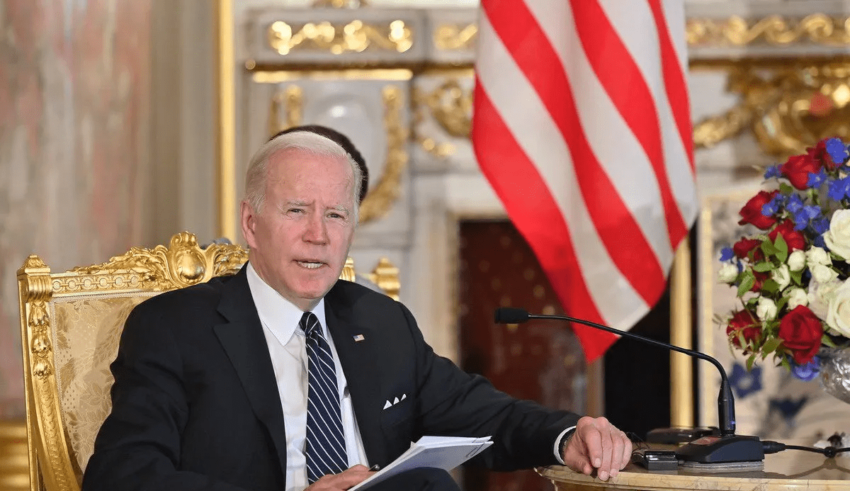
The relationship between the Saudis and American have been historically riddled with controversies and complications. Despite extremely different approaches to governance (one being an Islamic Absolute Monarchy and the other a secular constitutional republic), the United States and the Kingdom of Saudi Arabia have a rather interesting diplomatic relationship. While the relationship had strained during the Obama administration, the Americans have often overlooked some of their ally’s human rights policies and religious policies owing to their as long as it maintained oil production and supported USA national security policies. However, the recent OPEC+ decision to cut oil production is rumoured to create tension between the long-standing allies and for the White to rethink their diplomatic relationship with the Saud Dynasty. The articles explore why this could be an exciting turn of events.
While Saudi’s actions may be attributed to economic self-interest, many Democrats believe that this was another attempt in a chain of events to weaken the Democratic Party’s position before the midterm election. This move could have a dire impact on the country worn out by gas inflation and could alter the voting positions in favour of a more ‘Saudi-friendly’ government. This pattern is also reflected in the highs and lows of their diplomatic relationship between Democrat and Republican rule. However, KSA’s oscillating stance is only one among the many reasons why the United States Government should reconsider their relationship. US’ double standard in dealing with their allies involved in practices that they politically criticise and military combat in other nation-states has been called out time and again by the International Community. Owing to the slow but steady changes in the world economy, many nations do not equate the United States as the Global Superpower it used to be and do not think the government should get away with imposing their idea of justice that they seem to ignore for their economic gain. The US has presented its ‘need’ to ally with the Saudis to ensure relevant power over the Middle-East issue; however, the Biden Administration is struggling with matters closer to home. From student debts, failing healthcare systems and inflation, the average American expects the Federal Government to fix their country before they serve justice around the world.
However, can the United States reconsider their relationship at this point from a diplomatic, economic and military perspective? The answer is complicated. Irrespective of a desire to sever ties with KSA, the Biden Administration is aware that the void they would leave would be quickly filled in by nations that may not share the best diplomatic relationships with the United States. Its association with the Kingdom has played an instrumental role for the US in enforcing its presence, politically and geographically, in neighbouring Arab Nations and with South-East Asian Nations a few hours away. Reconsidering their relationship with Saudi will also mean reconsidering their position as a world leader today. As the nation’s superpower status erodes, the US may need to hold onto their dissatisfaction for a while.
However, it is due time for the United States to reevaluate its dependence on Saudi Arabia internally. One of the primary areas that the U.S depends on is oil production. The crude oil wells in Saudi Arabia make the country the gold reserve that it is. In the era of electric cars, the US must substantially continue investing in research and development to make electric vehicles both affordable and efficient for the common man. Striking at the root of their relationship, i.e., decades of bilateral agreements on oil production, is the only way America can get over their reliance on oil. However, evaluating Uncle Sam’s current love for capitalism, this may be a utopian idea. Owing to Saudi Arabia’s strategic role in the Middle East, another leverage the United States have over the Kingdom is that Saudi Arabia is hugely dependent on U.S. defence assistance, having purchased the vast majority of its arms from the United States. According to a recent Yale study, while other countries are competing to substitute this American dominance, the Saudis are aware of the quality and compatibility of their existing machines with American-made machinery. Although KSA, under Crown Prince Mohammed bin Salman Al Saud has attempted to diversify its defence sourcing, Saudi still purchases 79 per cent of its defence machinery from the United States. Instead of voicing displeasure at recent action, the United States must stress how Saudi Arabia is essentially solely dependent on the US for security assistance. This may also create an opportunity to address the international communities’ displeasure with condoning human rights violations by tackling it from the inside.
While it is clear that both countries depend on each other, It is essential that both parties continue to respect their long-standing diplomatic relationship. The United States cannot turn a blind to its allies’ violations, and respect for human rights and governance is the only way forward for Saudi Arabia. Saudi Arabia must also understand the sheer power that the United States holds in International diplomacy arenas and International Organizations; at the same time, they have recently become much more active in terms of foreign and security policy, clear from their prominent role in the IMF and the World Bank. However, in light of recent technological advancements, Saudi must be aware that they cannot leverage and test their relationship by gloating their oil reserves indefinitely (the UAE has already successfully branded itself as a tourist nation for the same reason). At the same time, the United States must understand how the international community is breaking away from old notions of ‘Victor’s Justice’ and is ready to call out its hypocrisy. It definitely takes two to tango.
References
U.S. Relations With Saudi Arabia, United States Department of States, May 11, 2022, Retrieved on: October 12, 2022 https://www.state.gov/u-s-relations-with-saudi-arabia/
The Economic And Security Case For A Temporary Halt In Saudi Arms Sales Responding to Saudi-Russian OPEC + Collusion And Debunking Myths About the US-Saudi Relationship, Yale School of Management, 2022 https://yale.app.box.com/s/z55iq5603vxfdyuo8fgsimjxopicgi5o
Wezeman Pieter D., Kuimova, Alexandra, Wezeman, Siemon T, “Trends in International Arms Transfers”, 2020, March 2021, Stockholm International Peace Research Institute. https://doi.org/10.55163/MBXQ1526
Sen. Richard Blumenthal, Rep. Ro Khanna And Jeffrey Sonnenfeld, “The Best Way to Respond to Saudi Arabia’s Embrace of Putin”. Politico, September 10, 2022 https://www.politico.com/news/magazine/2022/10/09/the-u-s-has-leverage-over-saudi-arabia-its-time-to-use-it-00061082
Spencer Bokat-Lindell, “Is It Time for the United States to Break Up With Saudi Arabia?”, October 12, 2022. The New York Times, https://www.nytimes.com/2022/10/12/opinion/saudi-arabia-gas-russia.html
By The European Institute for International Law and International Relations.












